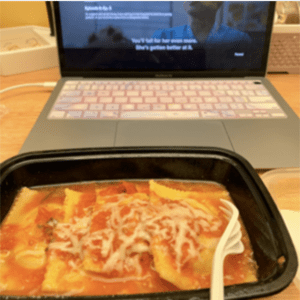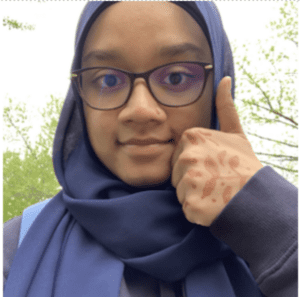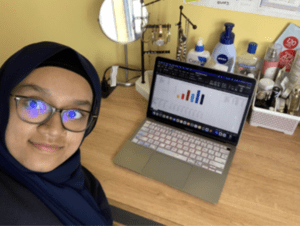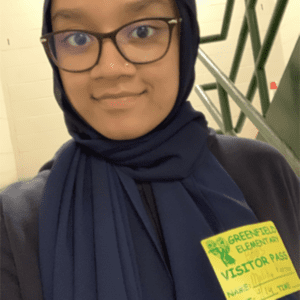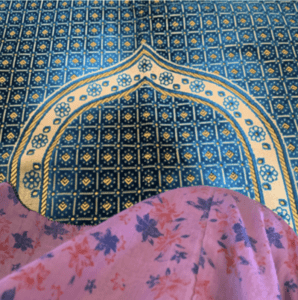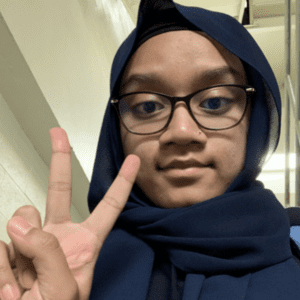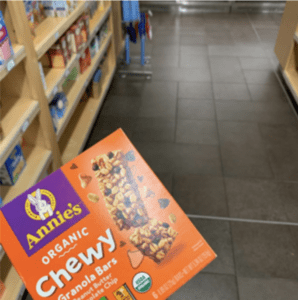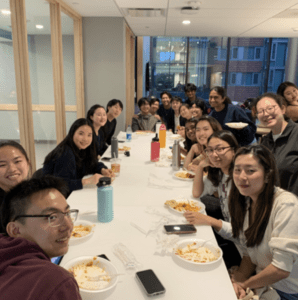Penn is an institution that prides itself on its diverse student body and it’s no surprise that many students at Penn celebrate Ramadan. To learn more about this sacred holiday, University Life reached out to Maliha Rhaman in hopes that she would share what it looks like to practice Ramadan as a student on-campus. Maliha was gracious enough to share her experience, including what a particular day might look like for a student during the holiday.
This year Ramadan starts on the 22nd of March and ends on the evening of April 21st.
What is Ramadan?
It is the Arabic name for the ninth month in the Islamic calendar. It is regarded as one of the holiest months for Muslims, and it’s characterized by a period of fasting. This is meant to represent one of the five pillars of Islam.
The 5 Pillars of Ramadan Are:
- 1. Faith
- 2. Prayer
- 3. Charity
- 4. Fasting
- 5. Pilgrimage to the Holy City of Mecca
Where are you from?
I’m from Atlantic City, New Jersey
What class are you taking and what are you studying?
I’m a sophomore studying Health and Societies and minoring in Chemistry and Asian American Studies. I am also on the Pre-Med track
Do you have any hobbies you would like to share?
I’m really into K-dramas because since school is so stressful, it’s nice to watch something funny, romantic, and simple. I also like to go on walks, especially by the river.
What is your favorite class you’re taking right now?
Asian American Activism. I like it because it’s my first Asian American Studies class, and I’m learning a lot of history that I didn’t know about. It’s really interesting to learn about Asian Americans in the 1800s and 1900s. Most of us are first-generation American citizens, so it’s really interesting to learn about the people that came here 100 years ago and what they went through. We also have guest speakers who are activists. That is really cool and interesting to experience, especially as a Pre-Med student because it’s so different from the rest of my classes.
What class are you most looking forward to?
Introduction to Asian American History. Since my current class focuses more on activism, I wanted a class that focused on history. It will go more in-depth, and I’m really looking forward to it.
What is your favorite place to eat around campus?
I like to go to Kiwi. I don’t eat out often, but I’m always down for a late-night snack!
When did you first start participating in Ramadan?
I didn’t have to do it until I was 11; however, I started practicing when I was 7. I didn’t do it for the full month, but I did it for a couple of weeks because my brother and my parents were doing it. It was a good habit to practice. At that point, it was August, so if I could get through it in one of the hottest months of the year, then I could definitely get through it afterwards.
How does it make you feel? Do you feel more connected to Allah and to your community by practicing fasting?
I like the community aspect of it, especially at Penn. Ramadan is considered as a time of reflection, forgiveness, and being kind to others and yourself. Definitely listening to lectures about Islam, listening to or reading the Quran. Breaking fast with family brings me closer to God, and that’s why I’m practicing to begin with. Especially at Penn, because there is this greater sense of community with the MSA and that we have iftars five days a week. It’s honestly a little easier being around my Penn community. Growing up I had Muslim friends but they did not practice as much as I did. At Penn, I feel that being around people who practice as much as me or even more has helped me stay on track and continue to be religious.
How has it been navigating through the rituals of Ramadan and being a student at Penn?
I think it’s harder because when you are in high school — yes, you have to be up at 7 a.m. — but it’s not that hard compared to college. At home, my mom would wake me up to eat Suhoor, and now I have to make sure I get as much sleep as possible in order to wake up in time and have a meal before my classes. The meal itself is very different, as my mom would have a slow cooked meal, and here I wake up to eat a granola bar. Taking this in mind, I think sleep has been an issue: not getting enough sleep has made it hard to focus on class and studying for exams has also been difficult. Because of that, I have to study all the time, and I don’t have enough time to devote myself to Islam, read the Quran, or pray in congregation. Activities have also been difficult to maintain because they coincide with breaking my fast. Everyone has been very understanding on why I can’t be present, but it is a little sad that I have to miss out on that part of my Penn experience, especially big activities like Spring Fling.
What is Eid Al-Fitr? How are you planning on celebrating it?
Eid Al-Fitr is the last day of Ramadan where we break our fast. Because I have the privilege of being so close to home, I will go home and spend it with my family. Although there is a community at Penn for me, Eid is about family. Since I recognize I have the privilege of spending it with my family, I try to relish the time I’m home.
Can you tell me what your day during Ramadan looks like?
